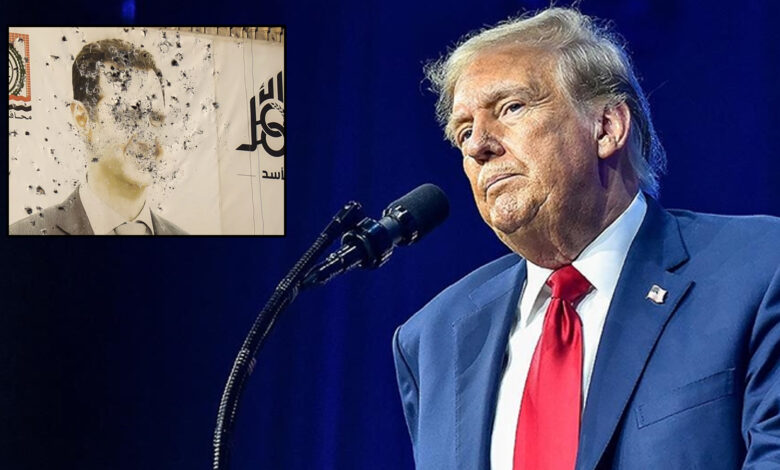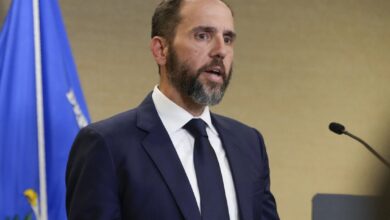Trump Urges U.S. to Avoid Involvement as Syrian Rebels Seize Damascus
Washington, D.C. — As Syrian opposition forces rapidly advance and claim control of the capital, Damascus, U.S. President-elect Donald Trump has called for America to stay out of the escalating conflict. Trump, who takes office in January, made his position clear on Saturday, posting on social media: “THIS IS NOT OUR FIGHT.”

Washington, D.C. — As Syrian opposition forces rapidly advance and claim control of the capital, Damascus, U.S. President-elect Donald Trump has called for America to stay out of the escalating conflict. Trump, who takes office in January, made his position clear on Saturday, posting on social media: “THIS IS NOT OUR FIGHT.”
The statement underscores a sharp contrast with current U.S. policy, as President Joe Biden’s administration continues to monitor the situation but reiterates its stance against direct military involvement in Syria’s civil war.
“The United States is not going to … militarily dive into the middle of a Syrian civil war,” National Security Adviser Jake Sullivan said during remarks in California. However, Sullivan added that U.S. forces would remain vigilant against threats from the Islamic State (ISIS), which could exploit the ongoing instability.
Rebels Claim Victory Amid Stunning Offensive
The Syrian rebel coalition, spearheaded by Hayat Tahrir al-Sham (HTS), has made dramatic gains in recent weeks, capturing key cities and culminating in their entry into Damascus on Sunday. The swift rebel advance has dismantled much of President Bashar al-Assad’s regime, which had been supported by Russia and Iran.
A spokesperson for the rebels declared the liberation of Damascus on state television, announcing that Assad had fled and that political prisoners had been released from the regime’s notorious detention centers. Early reports suggest Assad has left Syria, though his whereabouts remain unknown.
The fall of Damascus represents a significant geopolitical shift, potentially ending more than five decades of rule by the Assad family.
U.S. Policy in Focus
Trump’s firm opposition to U.S. involvement aligns with his broader “America First” approach to foreign policy, prioritizing domestic concerns and avoiding entanglements in conflicts abroad. Analysts suggest that his statement signals a likely hands-off stance during his presidency, even as allies in the region, such as Saudi Arabia and Turkey, play active roles in supporting Syrian opposition forces.
The Biden administration, meanwhile, has stressed the importance of maintaining stability while avoiding direct intervention. “We are committed to ensuring ISIS does not take advantage of the chaos, but this remains a Syrian conflict,” Sullivan said.
Regional and Global Repercussions
The dramatic collapse of Assad’s regime has broader implications for the Middle East. Both Russia and Iran, key backers of Assad, are now grappling with the loss of a strategic ally. The situation also raises questions about the future of Syria’s governance, as various opposition groups and international players navigate a potential post-Assad order.
In the U.S., Trump’s remarks have sparked debate about the extent of American involvement in global conflicts. Critics warn that disengagement could embolden extremist groups or cede influence to adversaries like Russia and Iran, while supporters argue that the U.S. should focus on domestic priorities and avoid costly foreign interventions.




